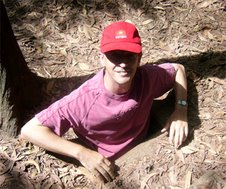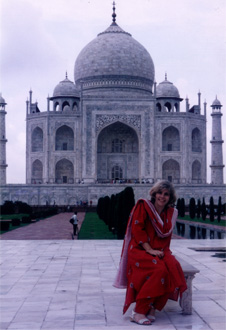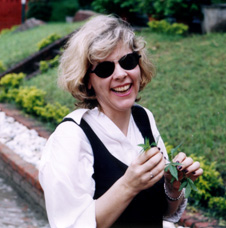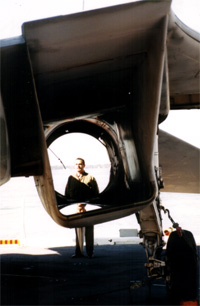The House that Jack Built
 In 2005 David Paton, good friend, mentor, example, and inspiration died after experiencing an aggressive cancer. I flew to New Zealand to attend his funeral. On the flight back I started writing some notes that were intended to capture something of what David meant to me. Taking a deep breath I thought I would share them more widely here on this blog. They are less coherent than I would like but they tell a story of what a difference one life, honestly lived, can make to those around them. These notes are offered up in 15 chapters which I will post out over the next fortnight.
In 2005 David Paton, good friend, mentor, example, and inspiration died after experiencing an aggressive cancer. I flew to New Zealand to attend his funeral. On the flight back I started writing some notes that were intended to capture something of what David meant to me. Taking a deep breath I thought I would share them more widely here on this blog. They are less coherent than I would like but they tell a story of what a difference one life, honestly lived, can make to those around them. These notes are offered up in 15 chapters which I will post out over the next fortnight.
And in order that you can put a face to a name, here he is, on the Stewart Island ferry, catching some "zeds". Or "zees" depending on what part of the world you hail from.
I have no memory of the beginning but for me David’s story really starts with his mother. Nell to few and Mrs Paton to us. I remember her as a grey haired, diminutive old lady. She was married to a laughing grandfather with hair growing out his ears, a tanned but balding dome – save for the occasional wisp of forgotten hair, woollen shirts and bushy eyebrows under which danced one sparkling eye and another that would occasionally drop out of its socket, to the consternation of my sisters and the delight of my brothers. A glass eye. Appearing among the mashed potatoes after grace was said. His name was Jack. He had a stumping, gruff walk – told us he had “a bone in his leg from the war” when we asked why he walked like that. Jack and Nell had three sons and one daughter. The children went off and did their high schooling at boarding school so we did not see them too often although David had finished his schooling by the time we arrived in the district. So David was always around. A highlight, and a delight, was to spend any time – a day, a weekend, school holidays – at “the Patons”. Their house was an old unpainted place surrounded by vegetable gardens, cats, fruit trees, and an old wire fence that kept poultry out. You walked through a wire gate with a frame that went up over your head on top of which for many years two little wind vanes spun, made from the tops of jam tins, soldered into shape and painted red and white by Alistair. After letting the gate clack shut you stepped across a little courtyard, rainwater tank to your right, and walked in the back door from which hung a perpetually loose brass door handle.
Behind that unpainted door was a cosy den, a very special place. It was Mrs Paton’s kitchen. As you walked in, immediately at your left shoulder was a blackboard and underneath that a bench seat. Whenever we visited we drew all sorts of things on that board, the profile of a Cessna being one of the favourites of Butch Thurlow. Butch was a neighbour who would sit in this kitchen on Sunday evenings and chew the fat. I copied that Cessna assiduously (and am sure I could draw it from memory thirty five years later with my eyes shut) and which David would occasionally mimic. On this board were usually notes about the farm. Jobs to be done. People to call. Number of sheep crutched. Ear tag numbers. Phone numbers. And the occasional Cessna. I have memories of local lads, Butch, and Grant sitting jammed across that bench with David, legs stretched out into the heat of the kitchen and blocking all traffic, laughing and talking and enjoying each other’s company.
Stand in the doorway, doorhandle threatening to fall out as you hold it. Cast your eye around the room from left to right, and immediately after the blackboard is a door which lets you into the rest of the house. Let’s digress there for a moment. It was usually a lot cooler out there than in the kitchen. But out there, on special Sunday afternoons, Westerns were shown on a black and white television. A real highlight on a wintry day, with a fire choking on damp pine cones in the grate. We did not have television at home at the time so even today a black and white Western, with lots of shooting, improbable chases and even more improbable Indians falling off every rocky outcrop, transports me back to that room. But back to the kitchen.
To the right of the “close that thing, you will let the cold in” door was the source of memorable meals and continual warmth. A coal range burned night and day it seemed. The oven was warm when you went to bed. It was warm when you arose, regardless of the hour. From here everything from roast poultry - geese, turkeys, hens and ducks all headed for her table or tables around the parish. Mrs Paton was famous, in our house at least, for her sponges, made with her secret ingredient - duck eggs. I recollect that the rest of the district were familiar with them as well. Above the coal range was a mantelpiece littered with everything a mantelpiece should be littered with. Casting your eyes right and looking at the third wall you looked out across the sink, set in a wall to wall bench and backlit by a window that gazed out across the vegetable patch. Sometimes that window was the source of our undoing as we attempted covert samplings from the garden. Peas were a favourite target. In the middle of the room, but erring to the fourth wall, set on a threadbare carpet, was the wooden kitchen table, scrubbed smooth but always covered for a meal by a large table cloth. Around this we would scrunch up for meals, caught in a cosy haven, warmed by the ever radiating coal range oven, bustled over by Mrs Paton, and gleamed at by Jack who always loved all the madness. Bowls of steaming greens. A small mountain of steaming mashed or boiled potatoes with more butter melted across it than is good for anyone, and the ubiquitous roast poultry with seasoning we would ache for.
I never knew David’s upbringing. He was 20 when we arrived in the parish and I was a newly minted 5 year old, with a new yellow toy car and a fear of his dogs. It was 1966. 15 years difference at that point is more profound than at the other end of the continuum. But over the next ten years I was fortunate to have a taste of what David grew up in and what he came back to after he finished school. And, in a sense that from which he never really left. It is a context that is made all the more poignant when I later learned that Mrs Paton prayed for twenty one years that someone would come to the parish to teach her children about Jesus Christ. For those 21 years the parish pulpit had either been vacant or had been led by pastors who suffered the liberal thinking of the times. Naturally as a 5 year old I was ignorant of these things but the whispers of those dead times came to my ears as I moved into my teens.











1 comment:
Thanks for articles and content.
Post a Comment